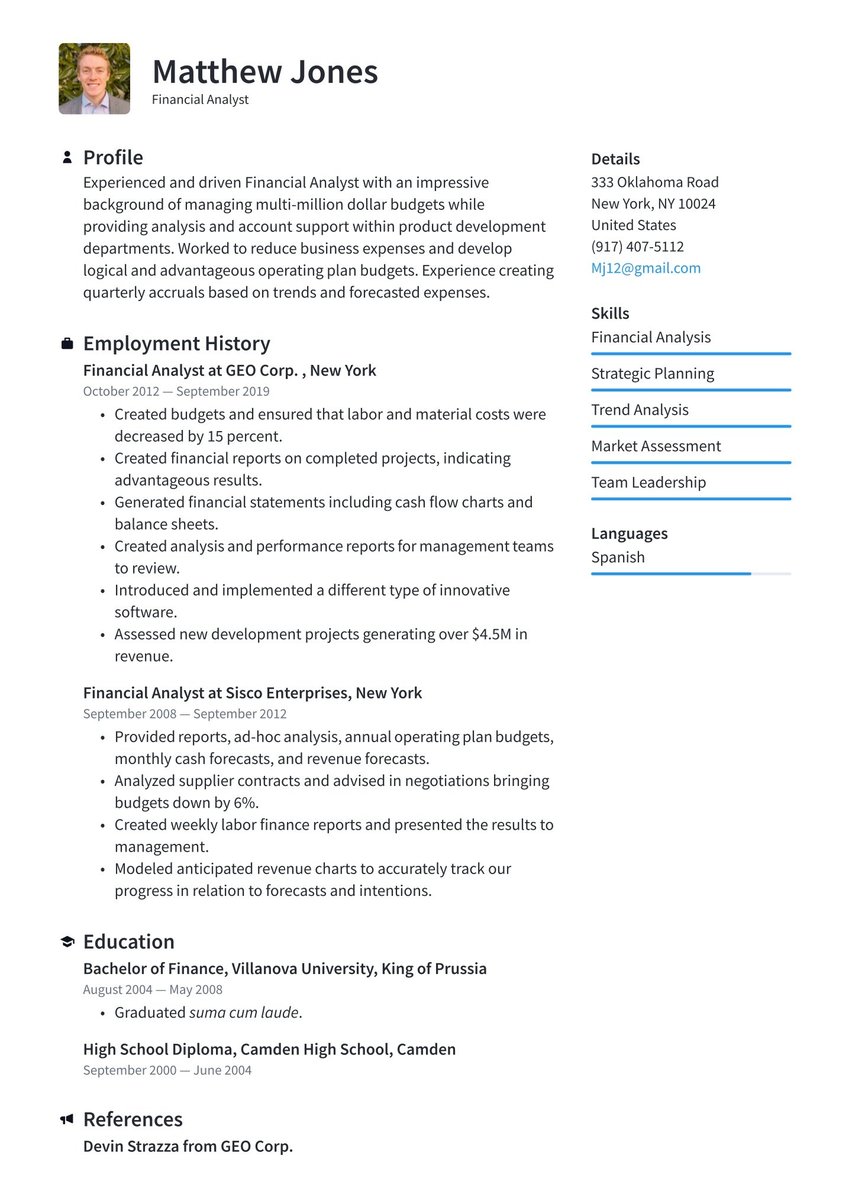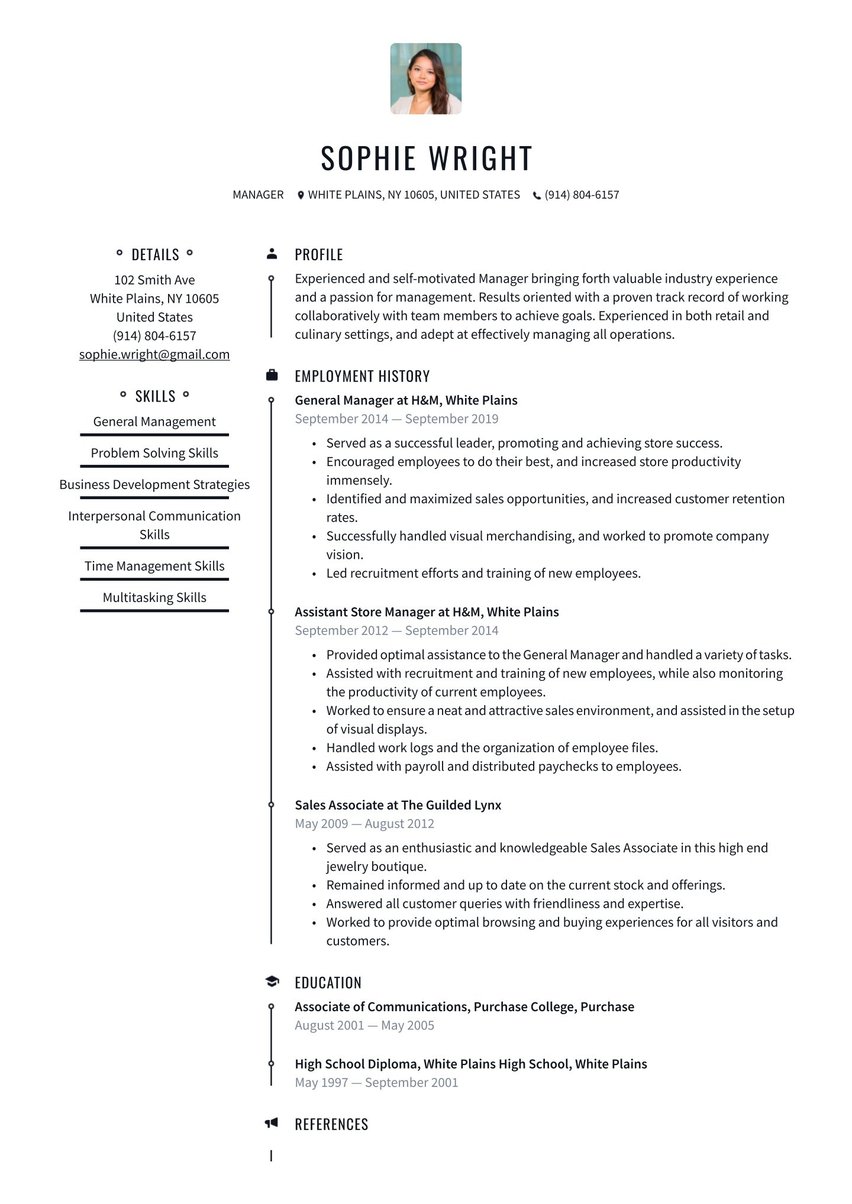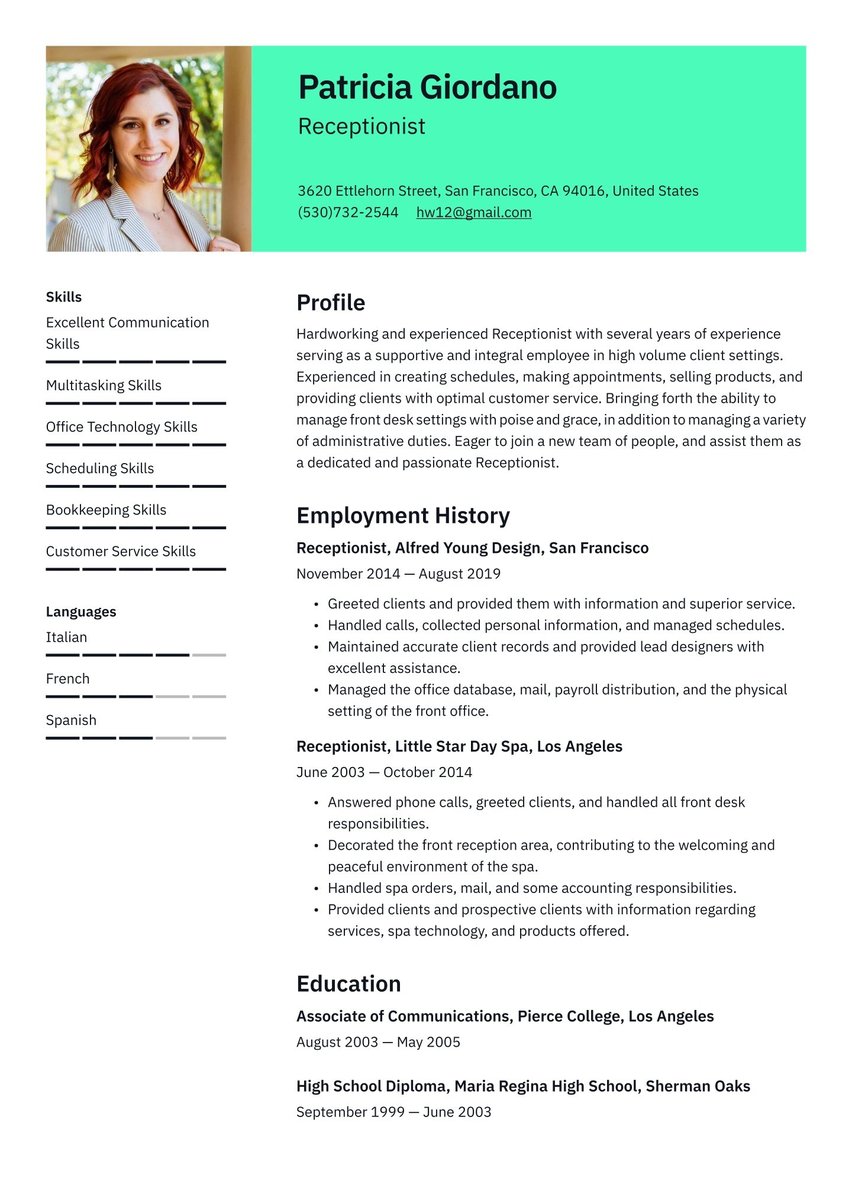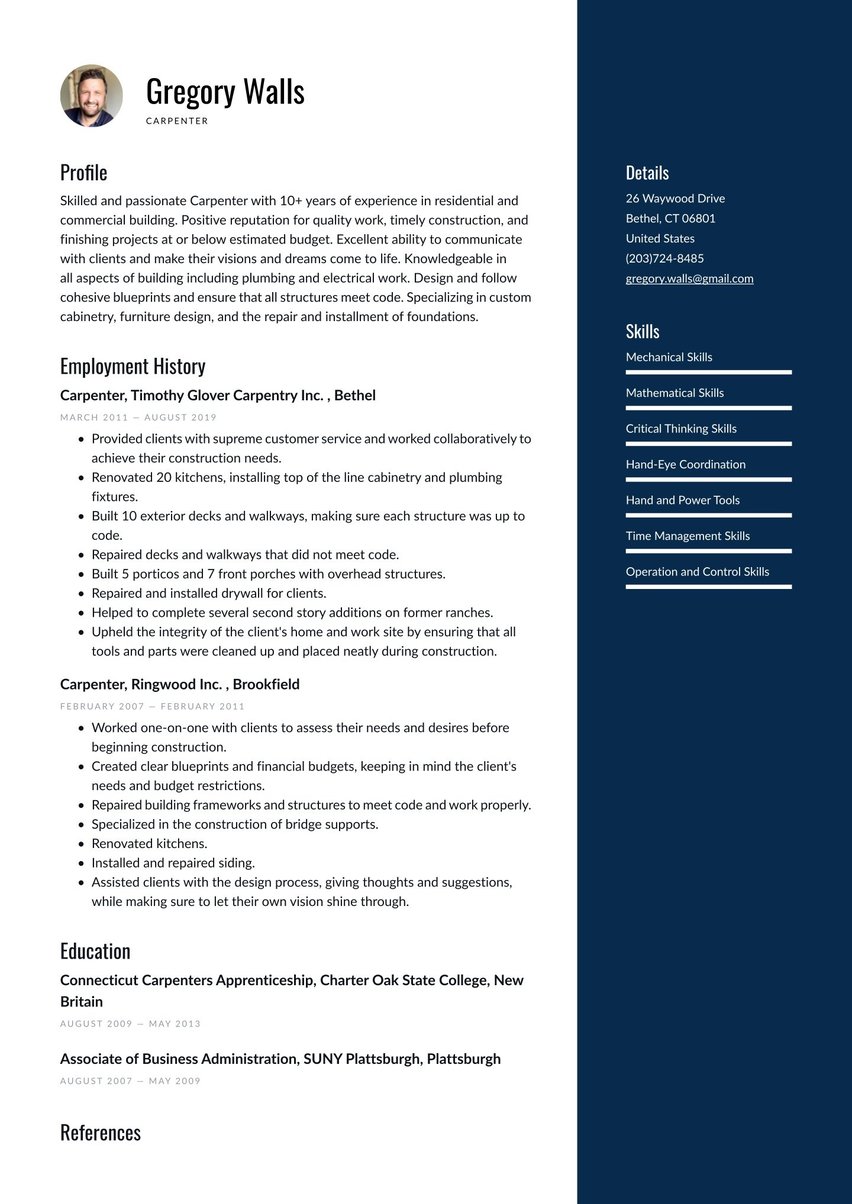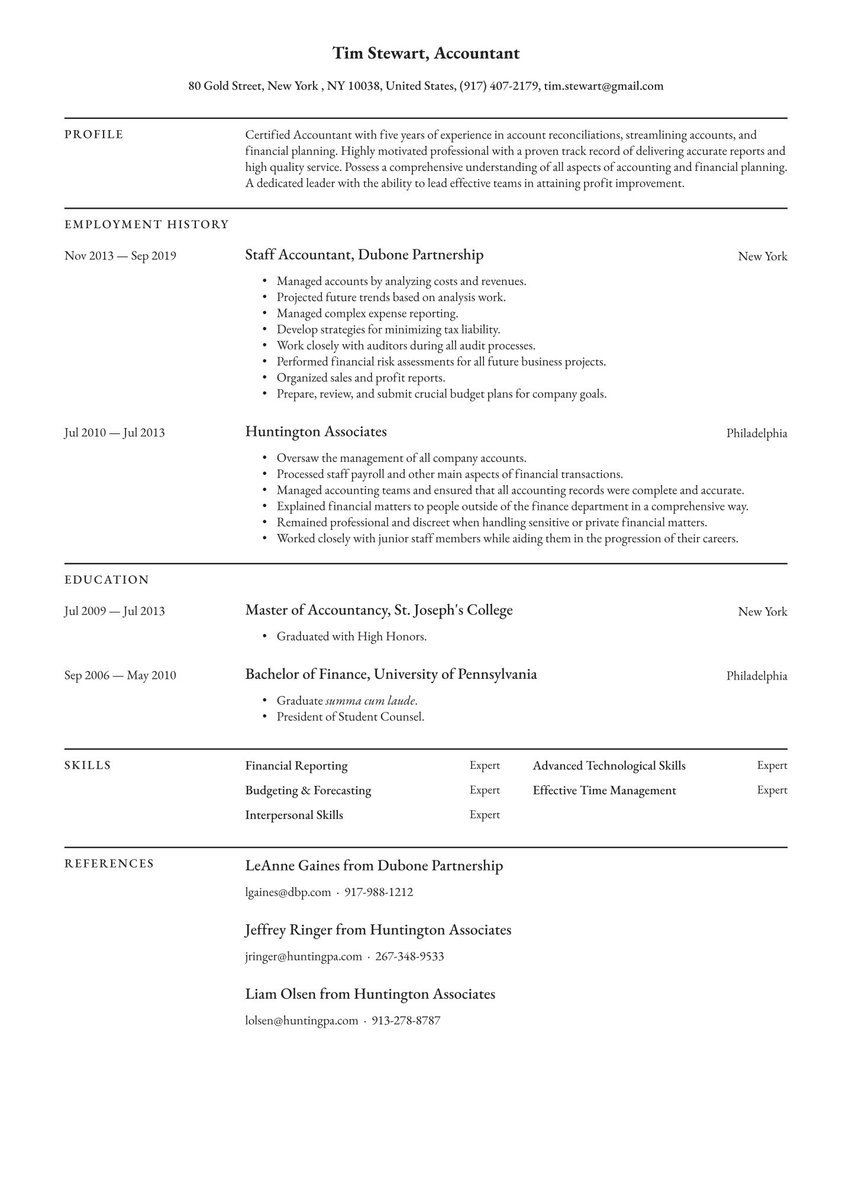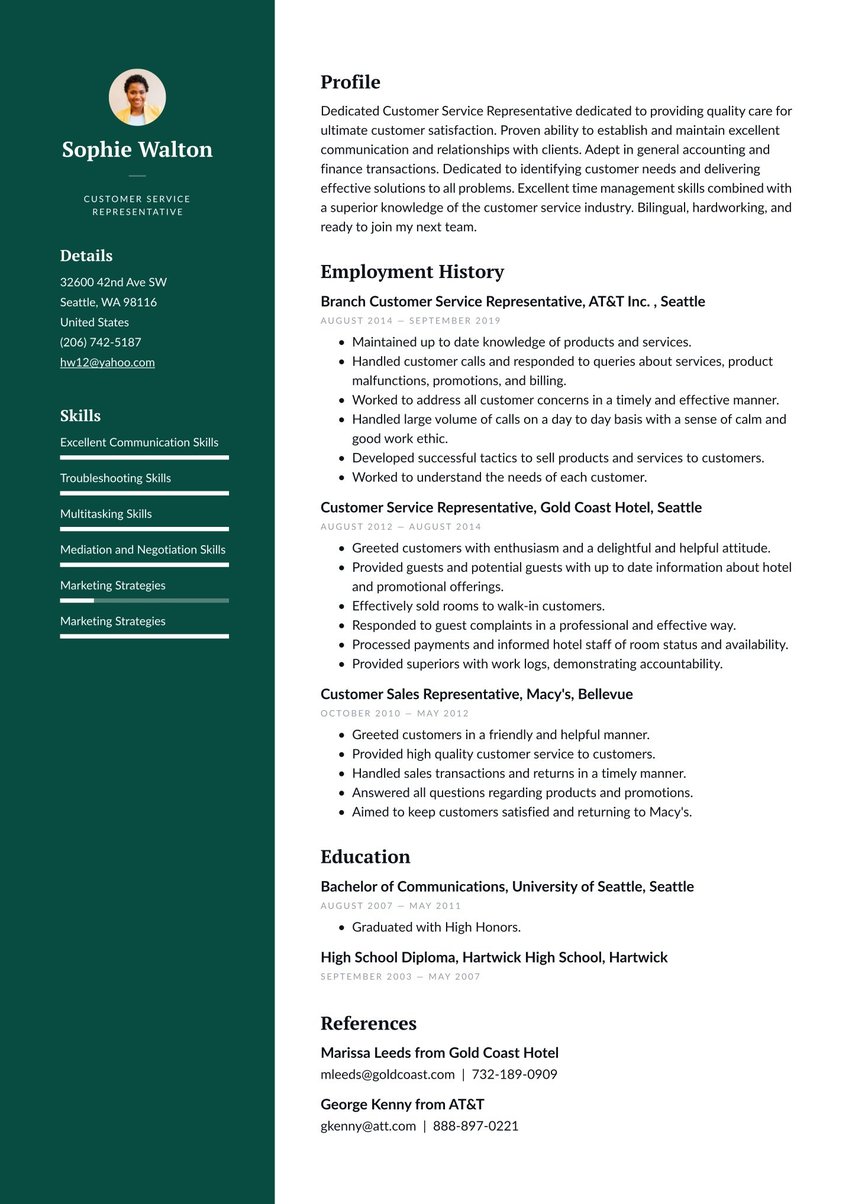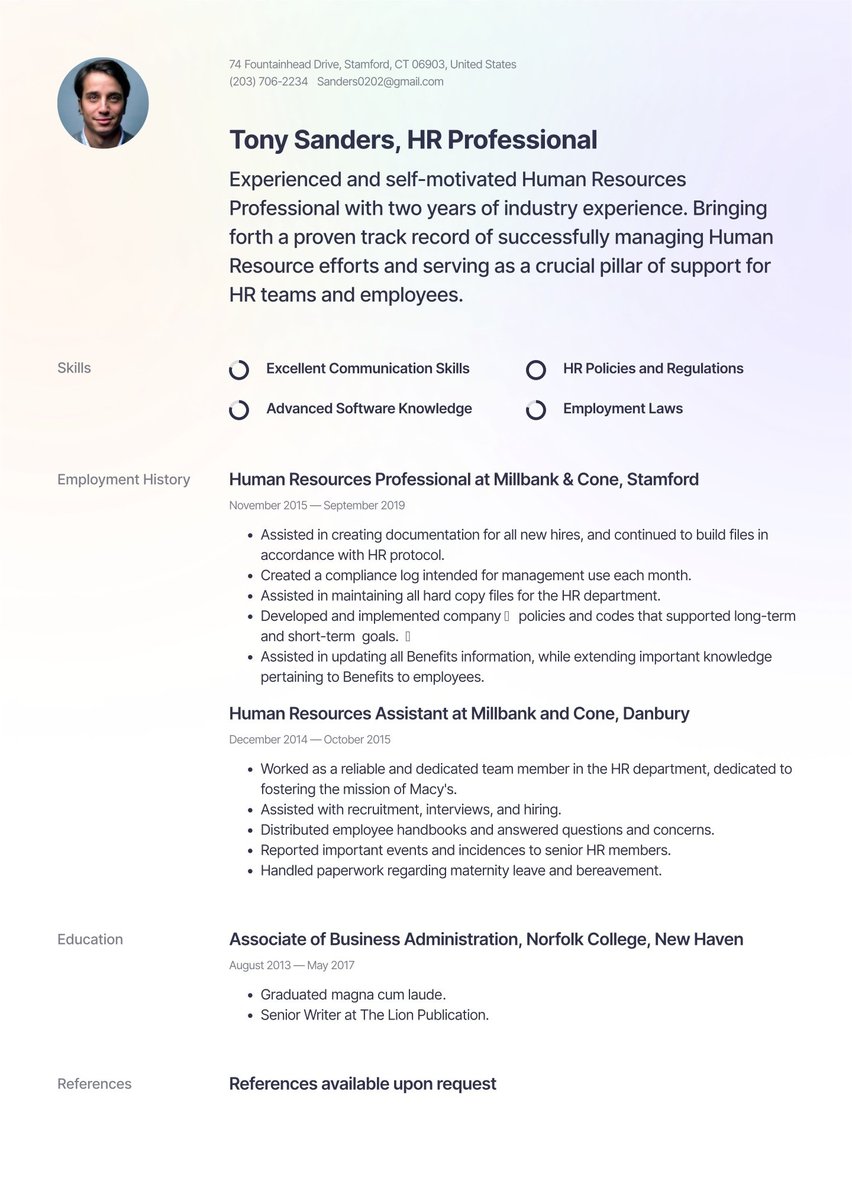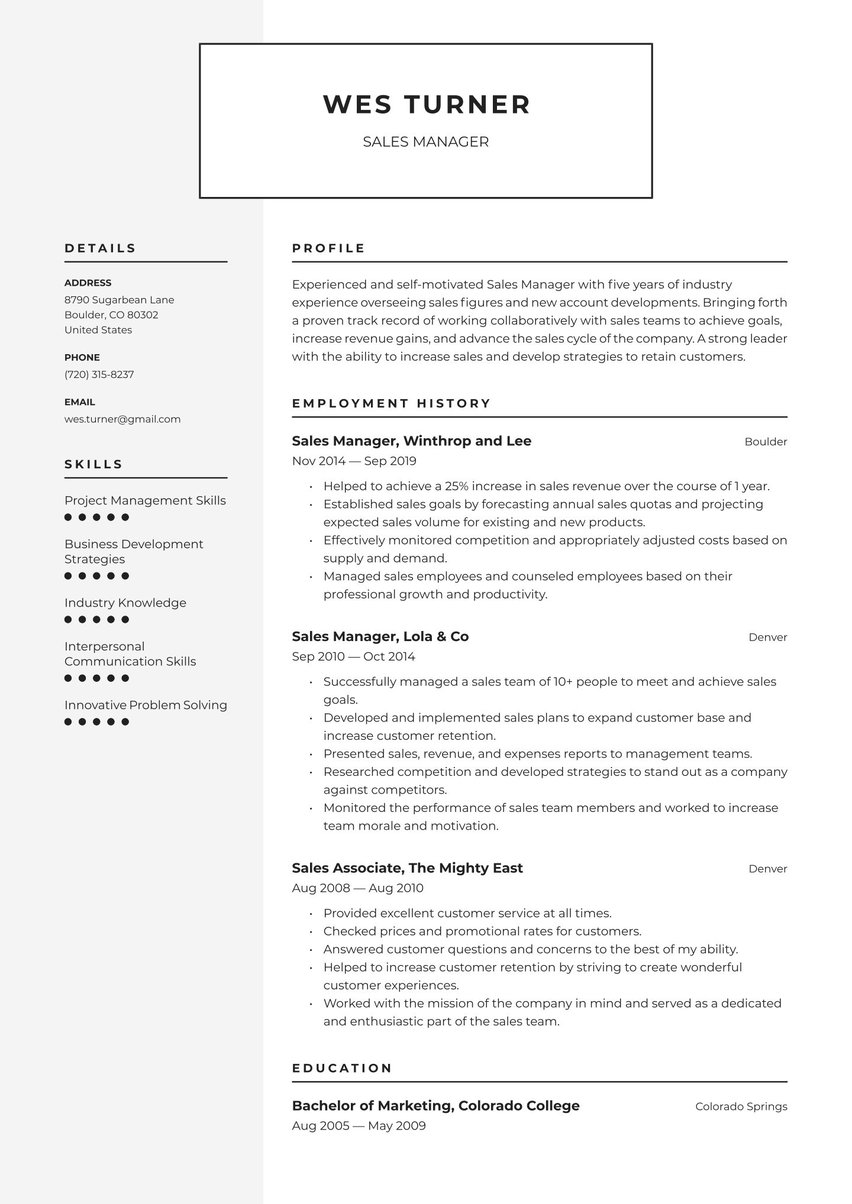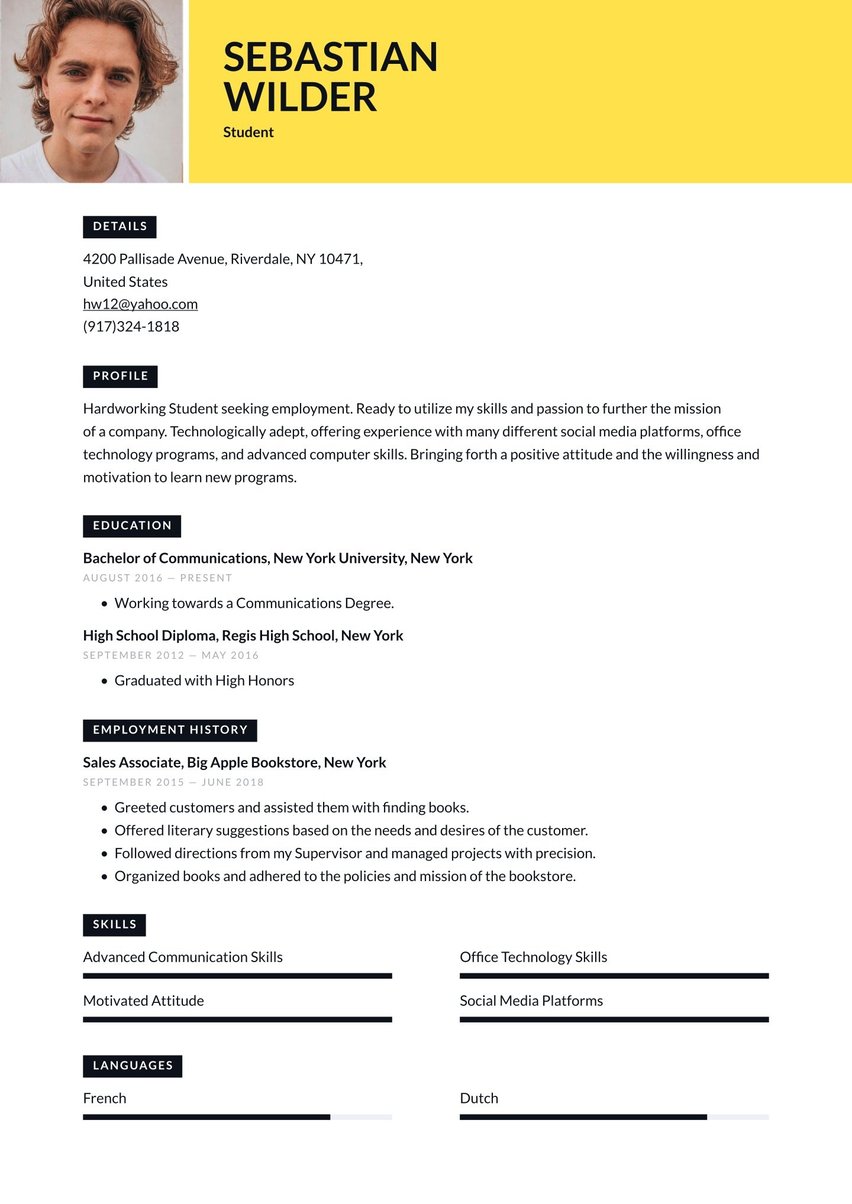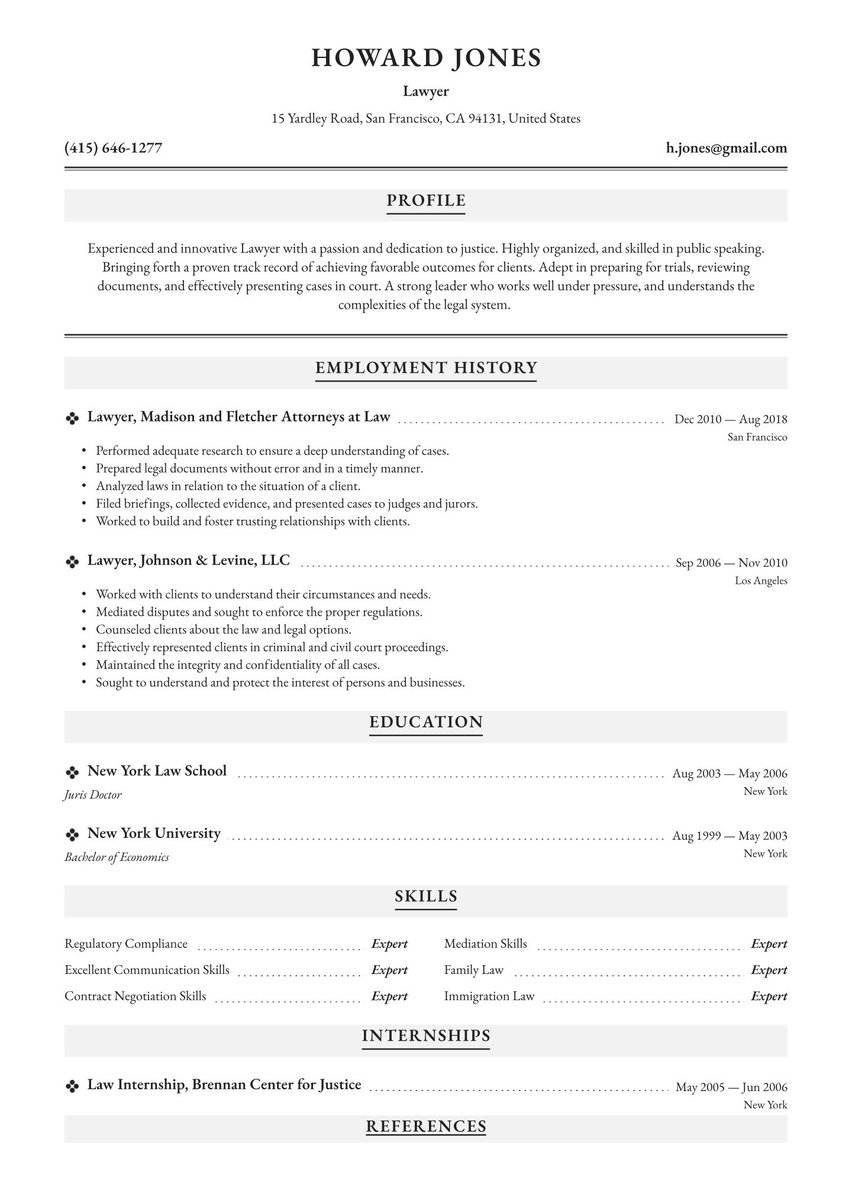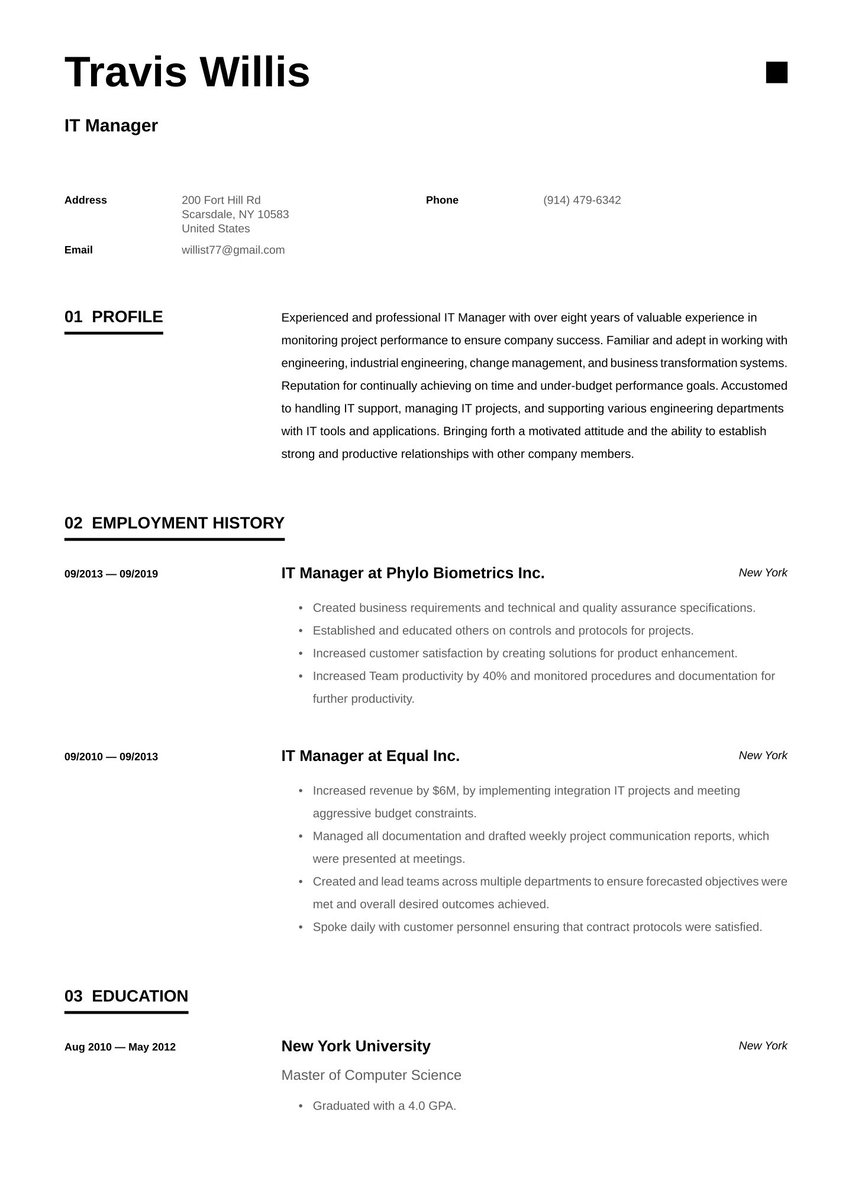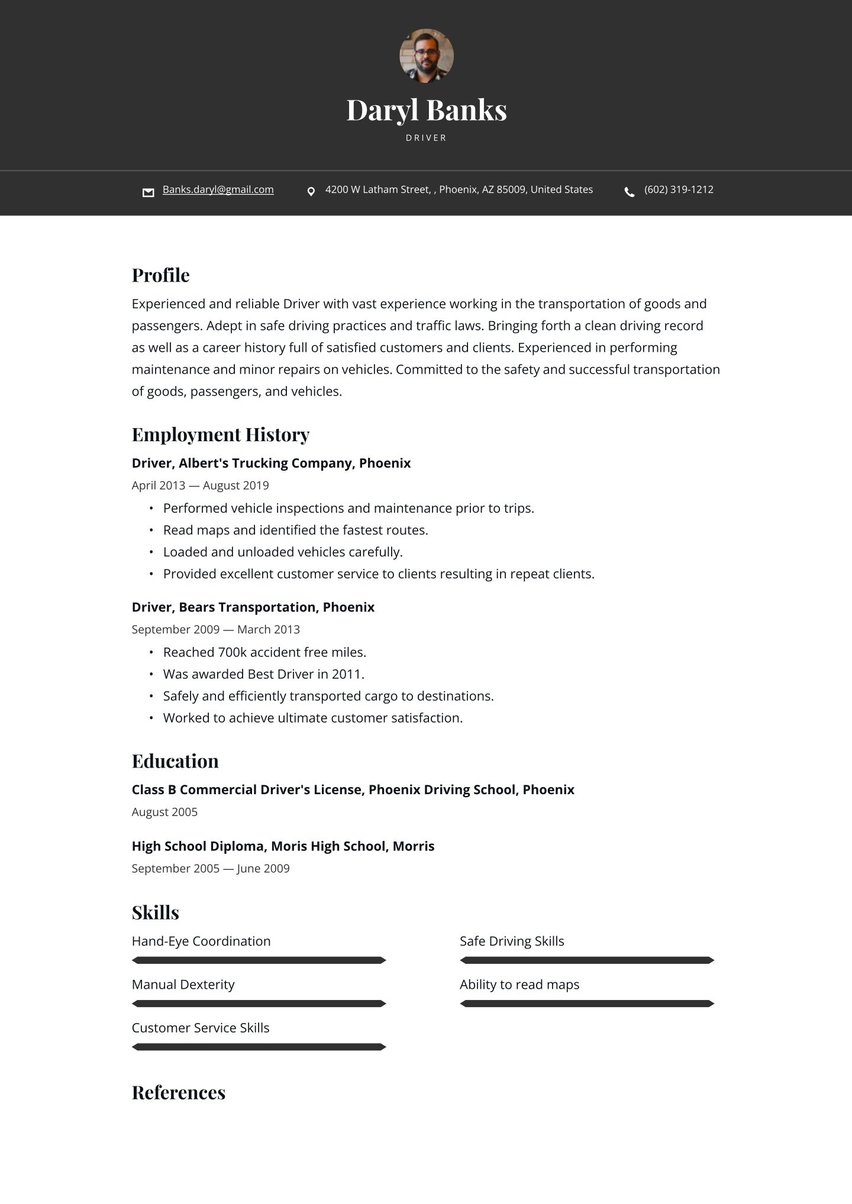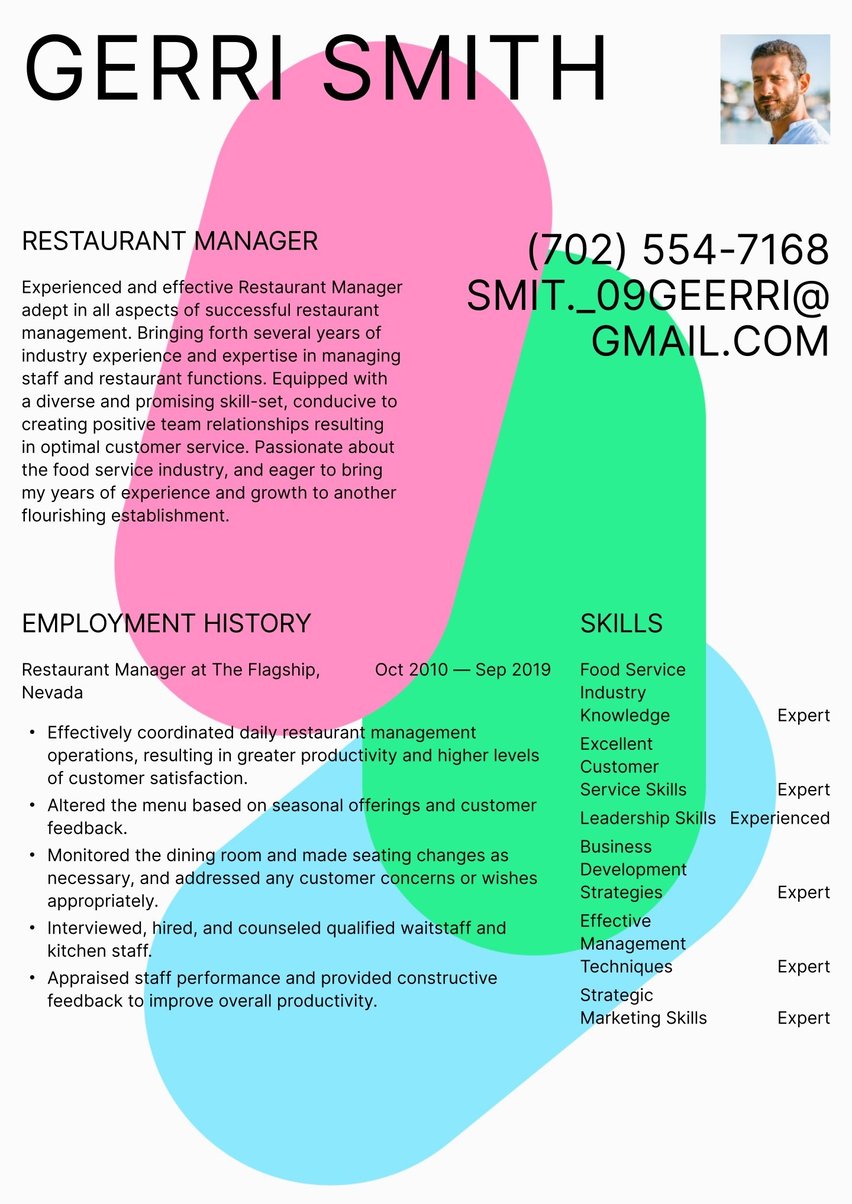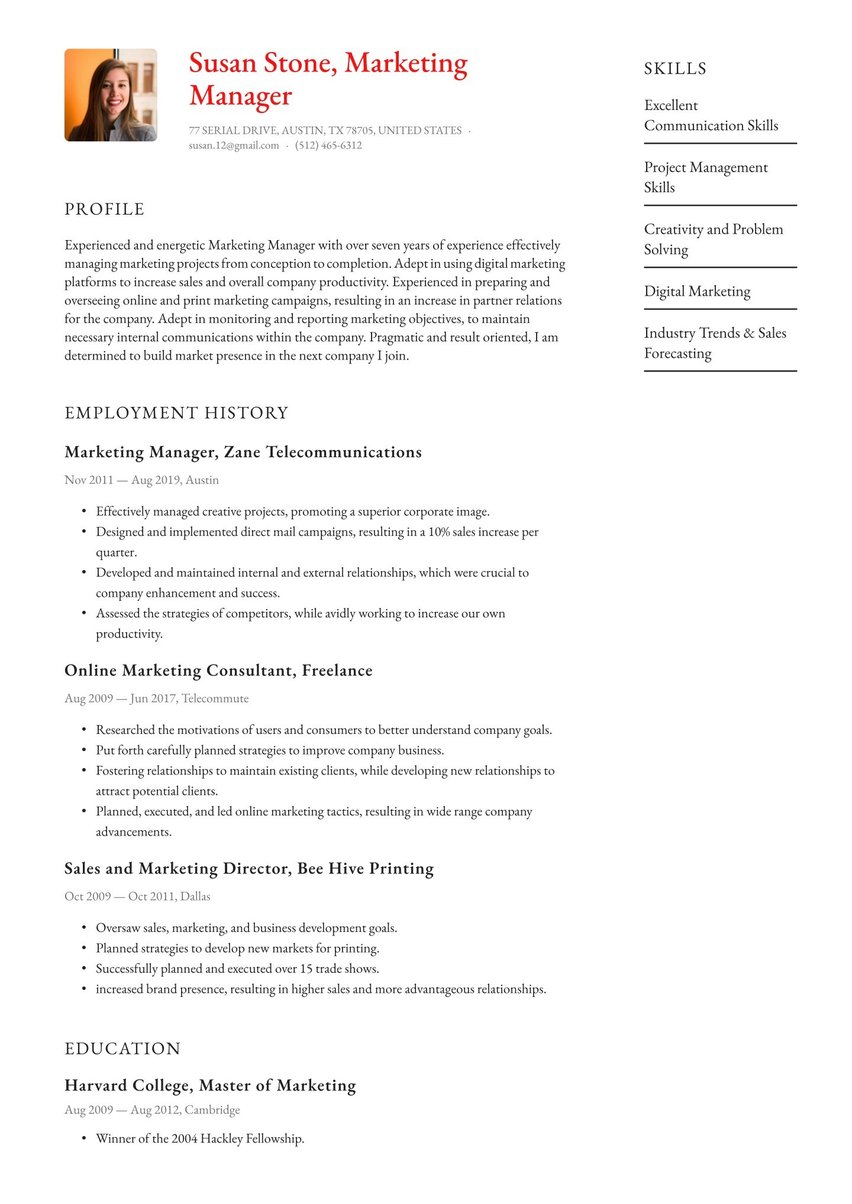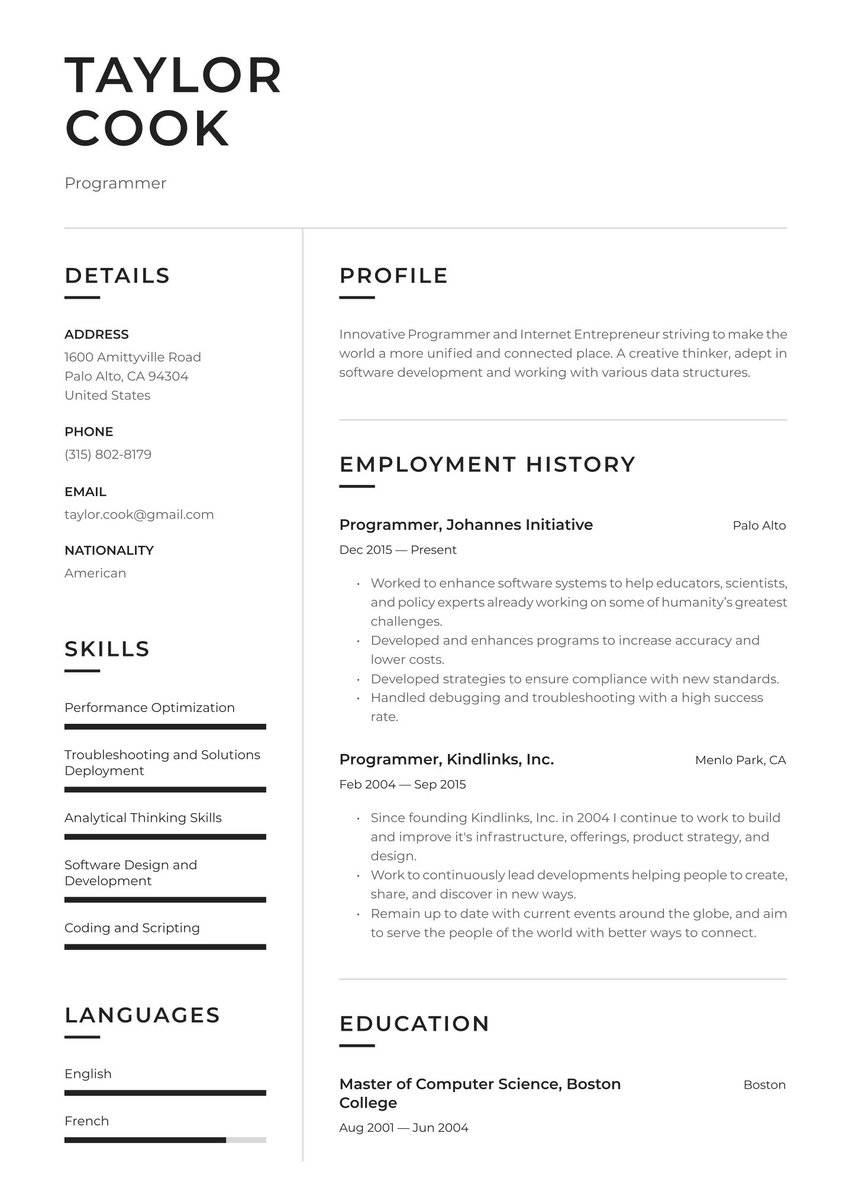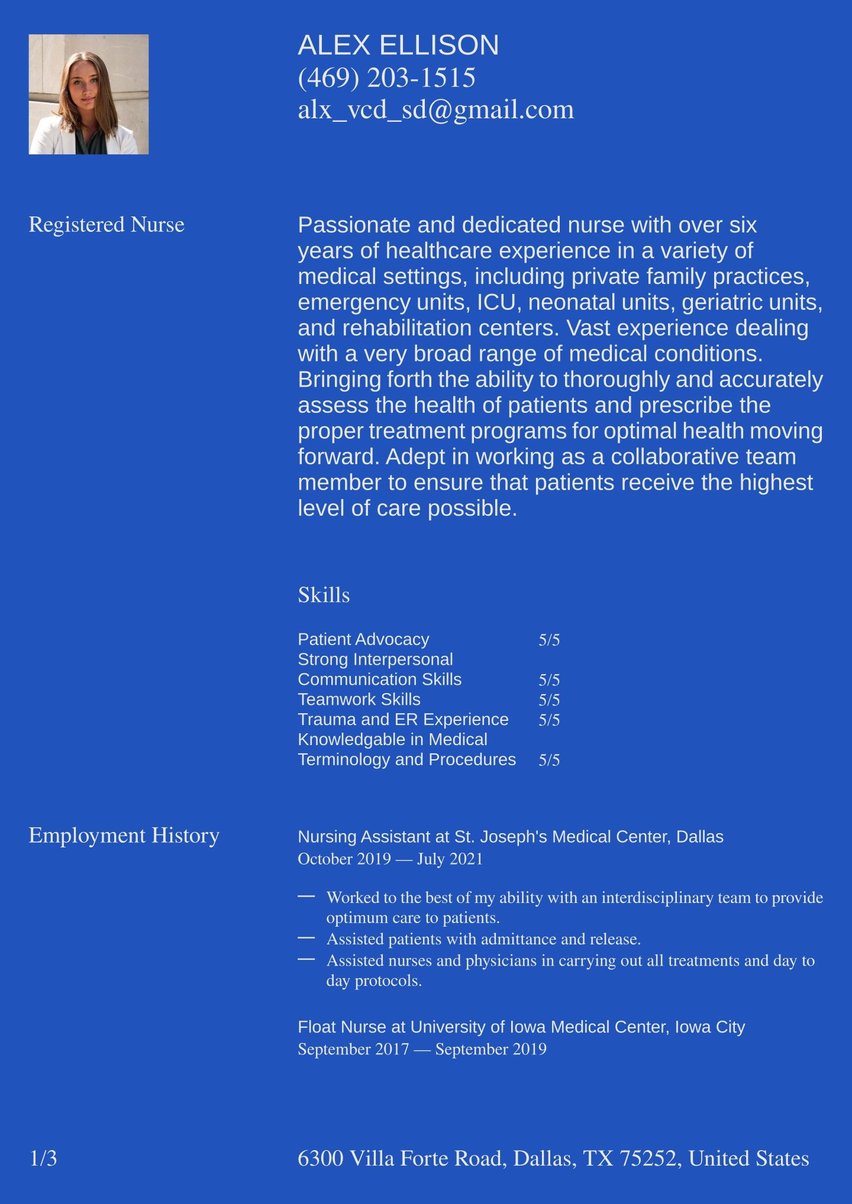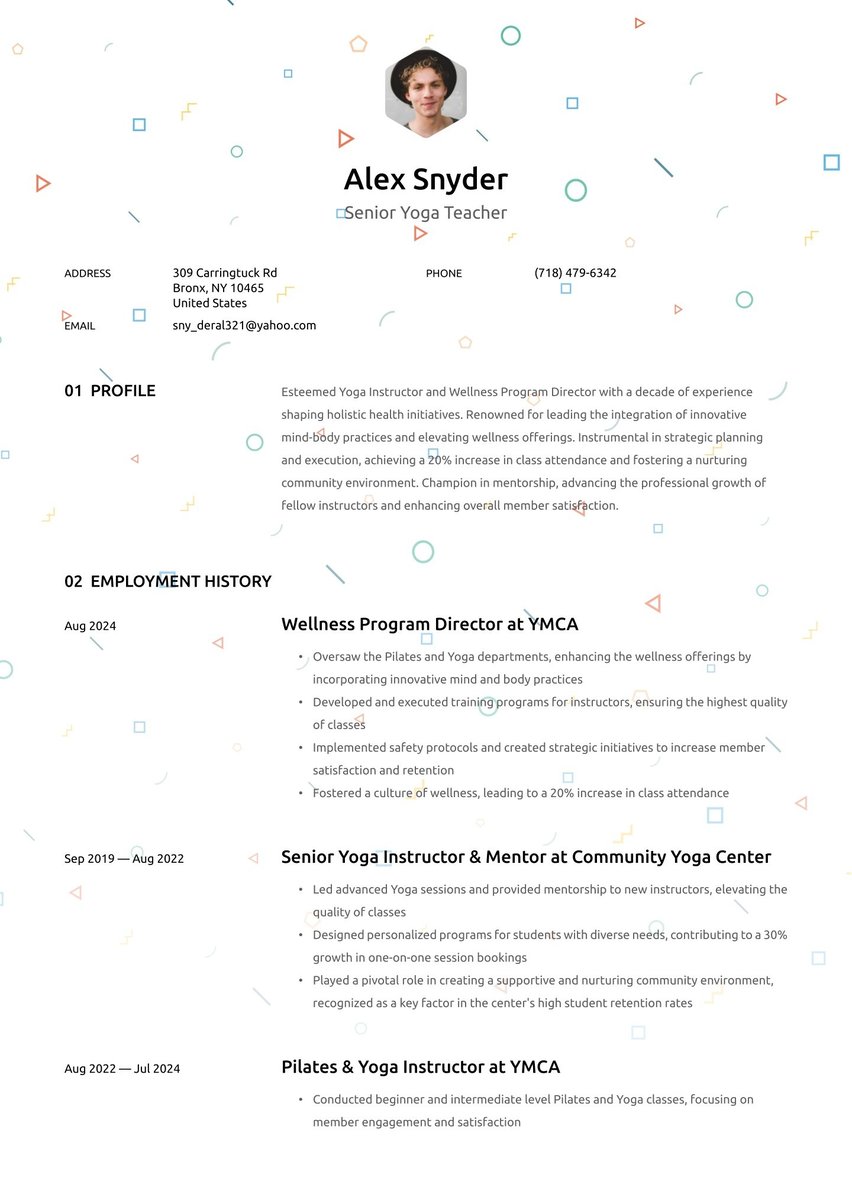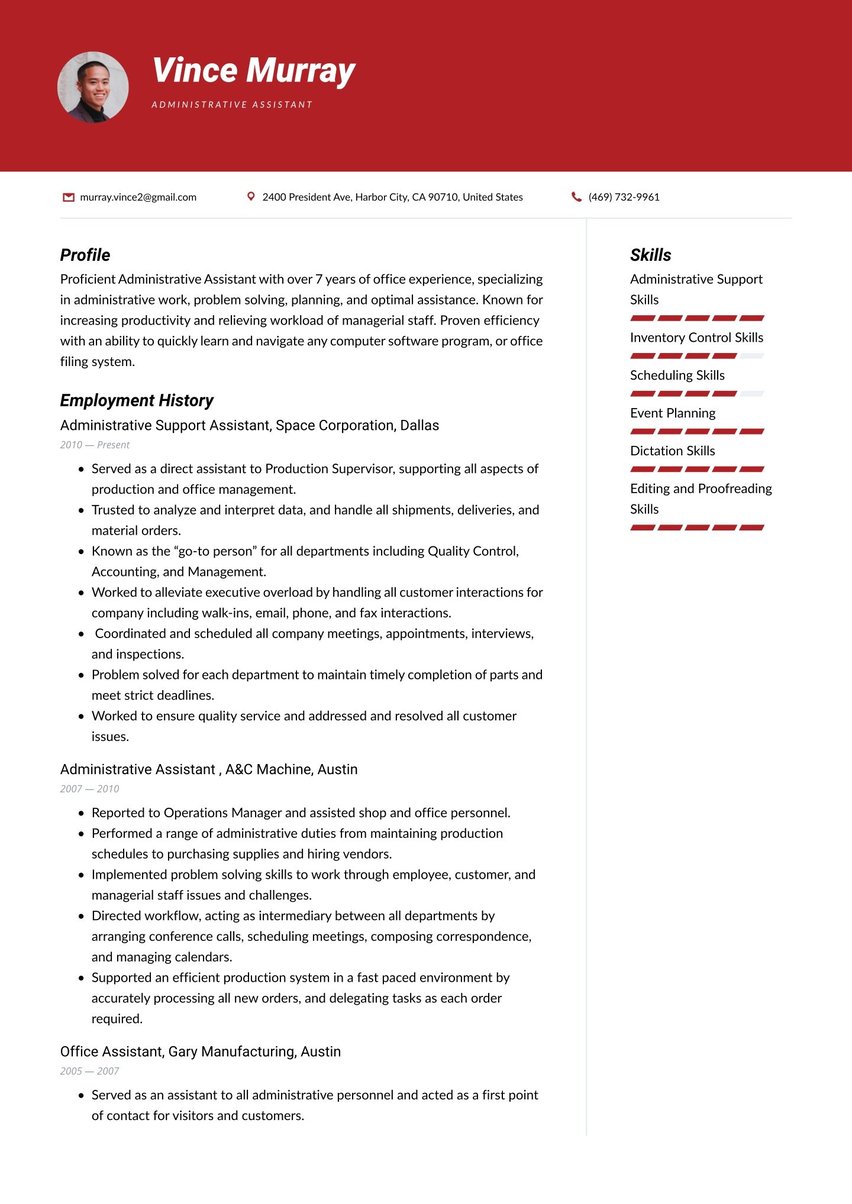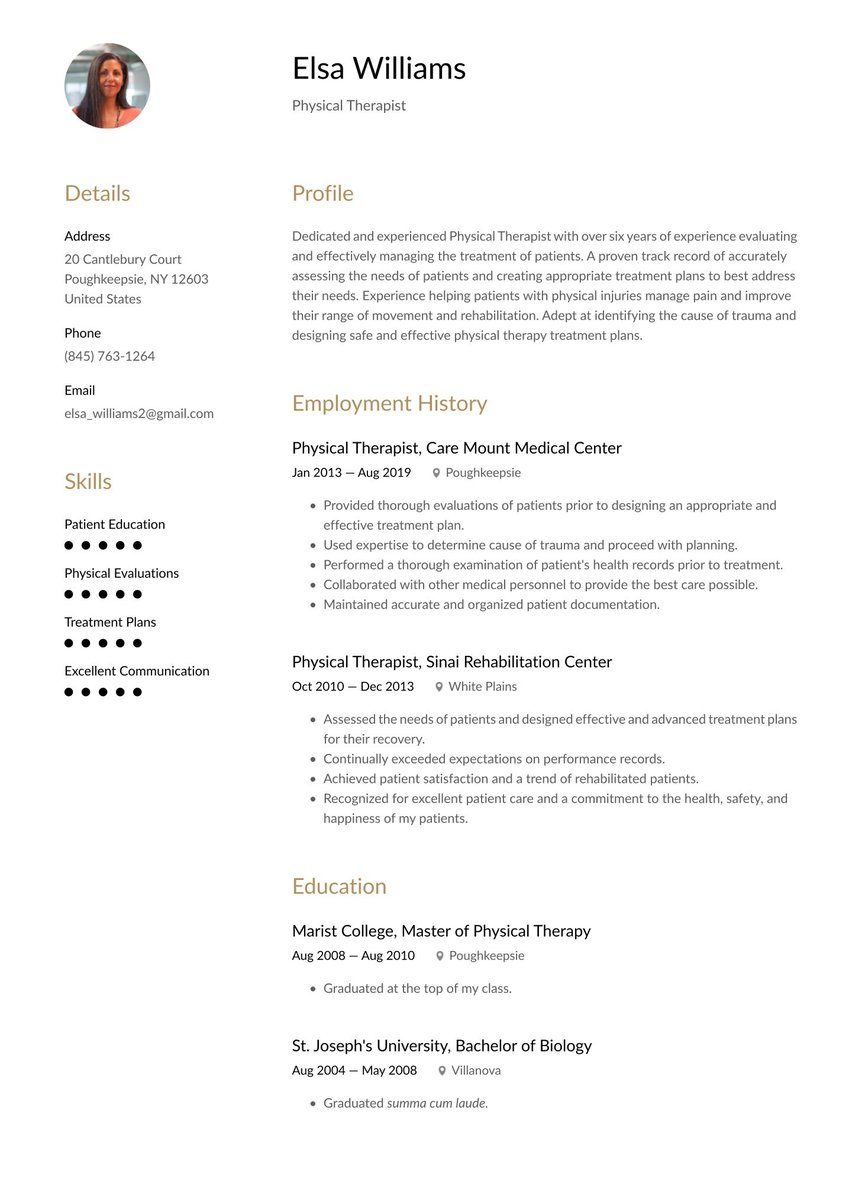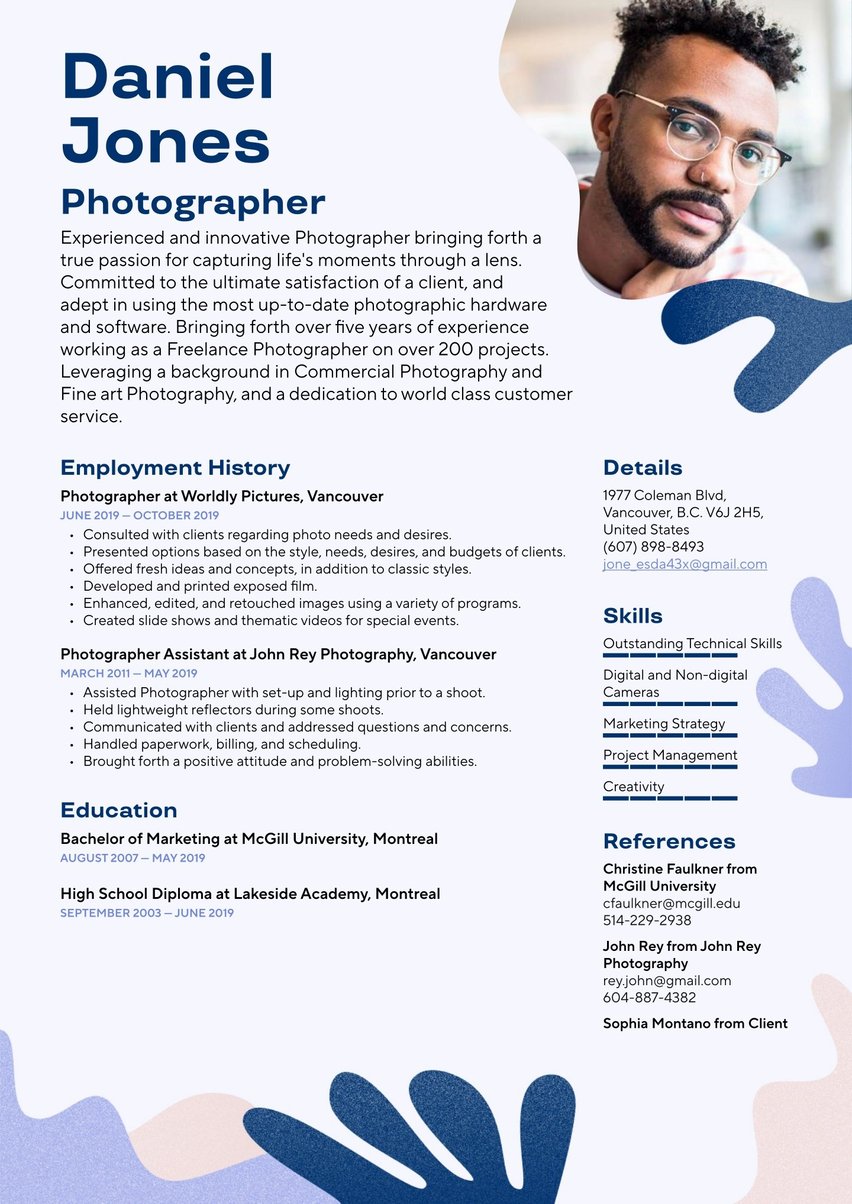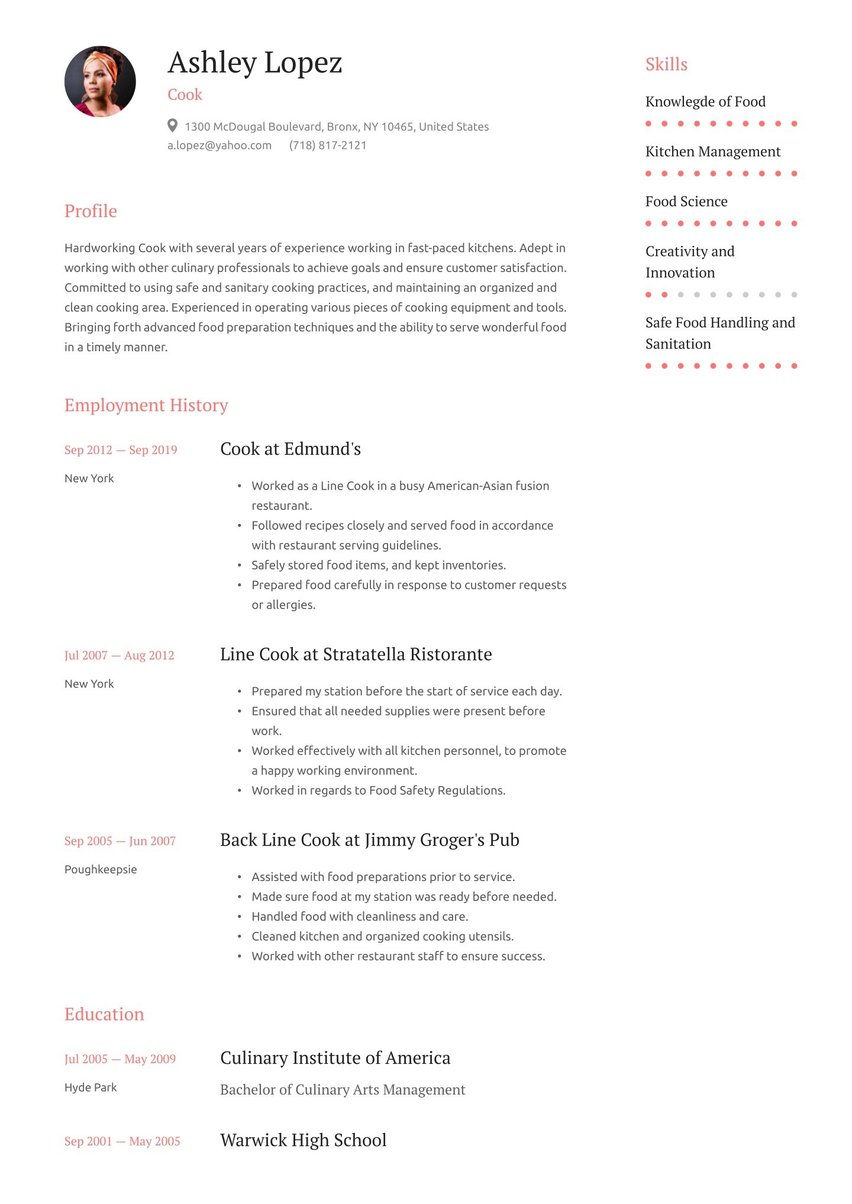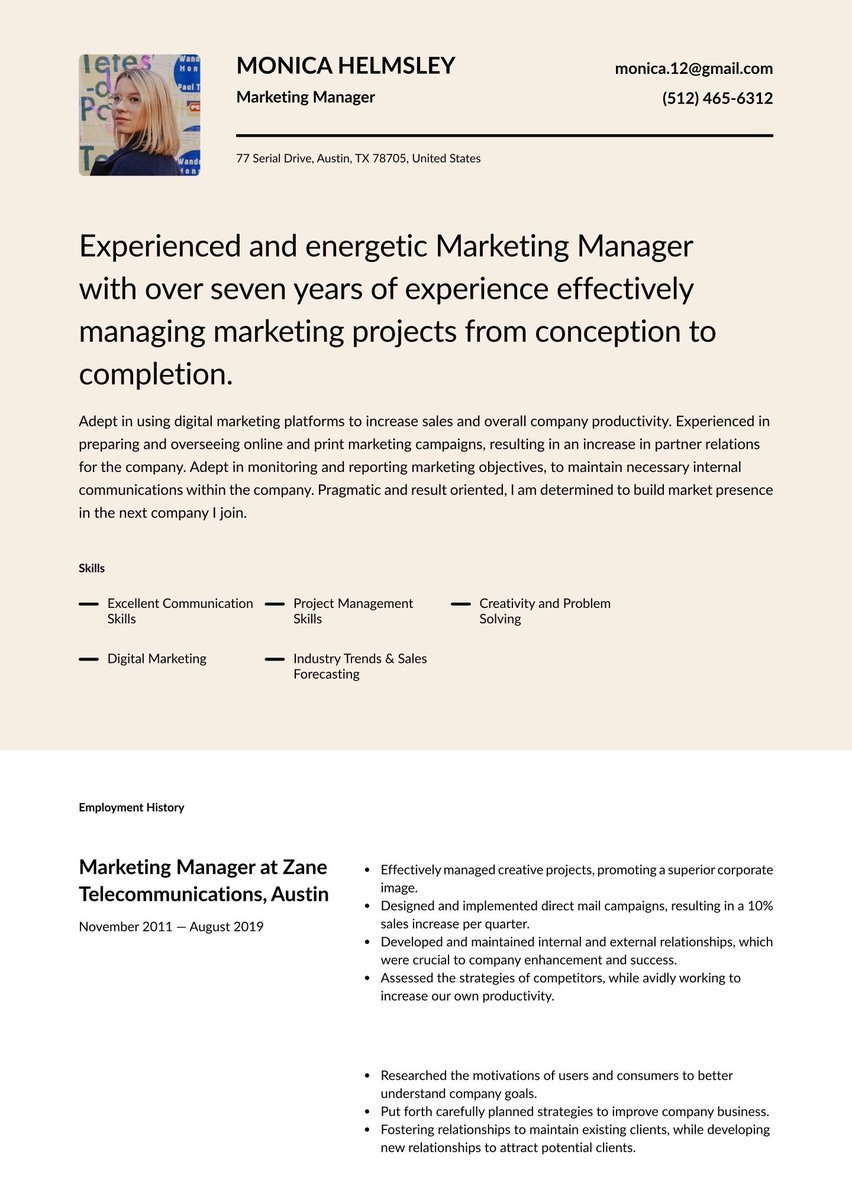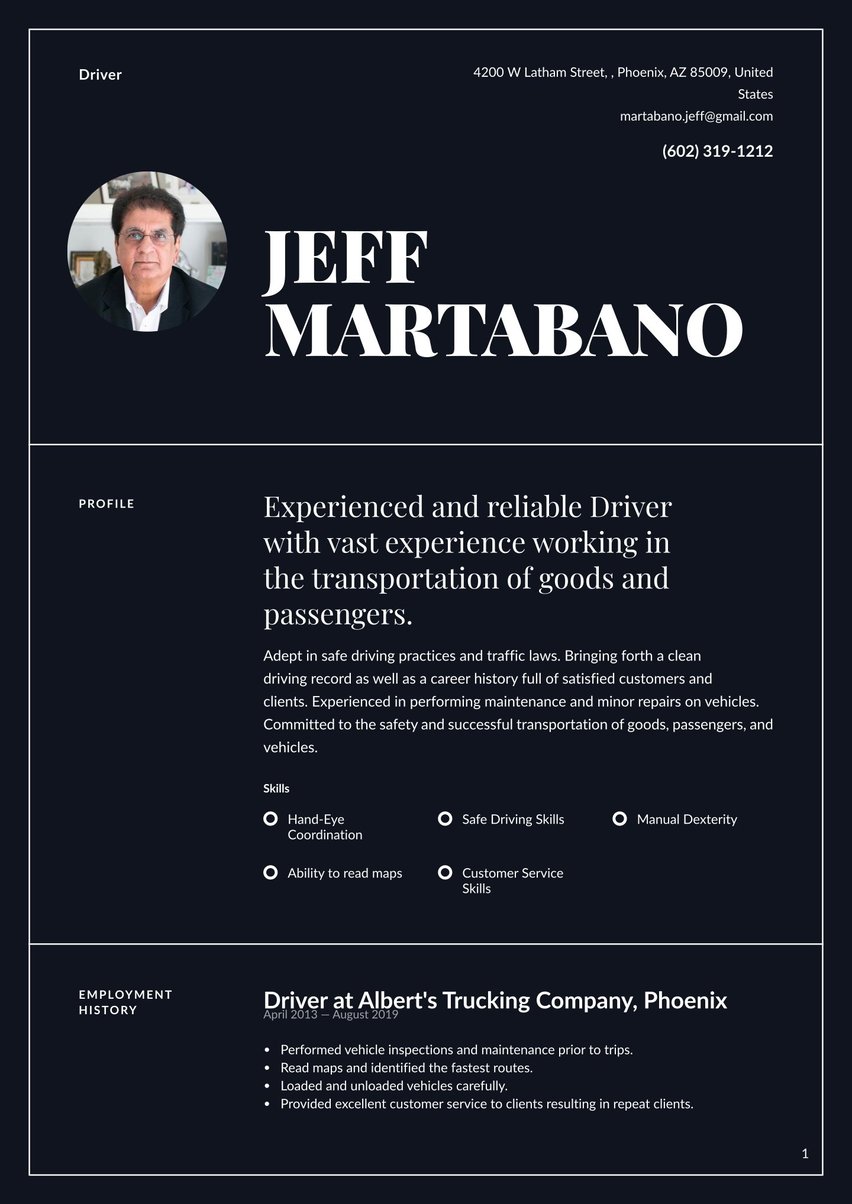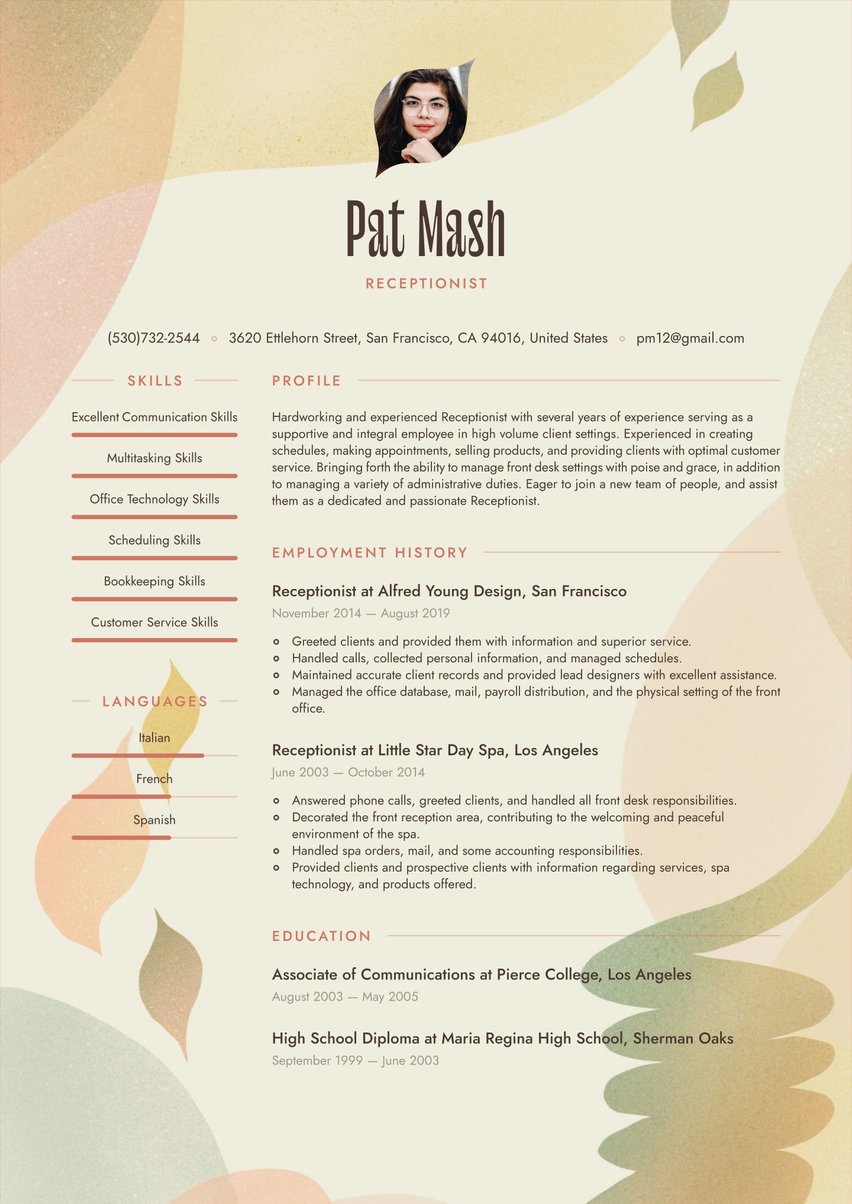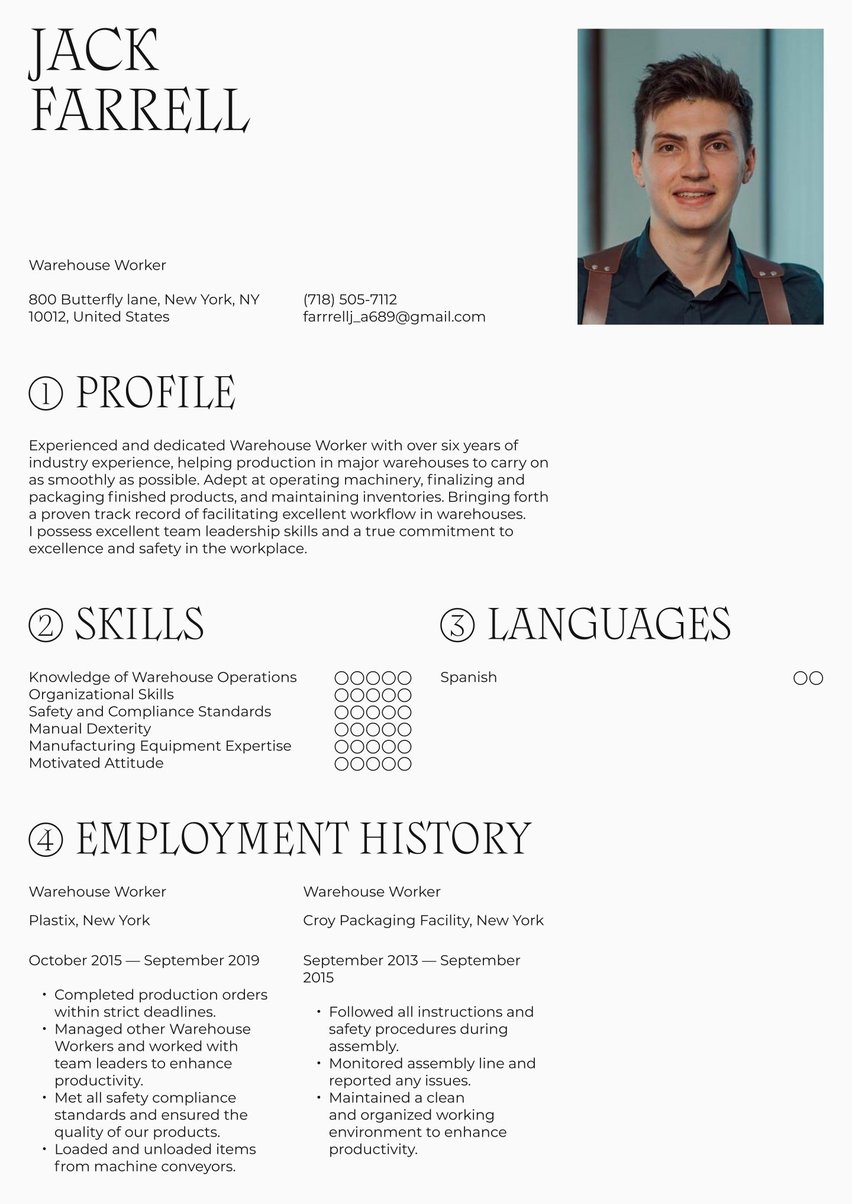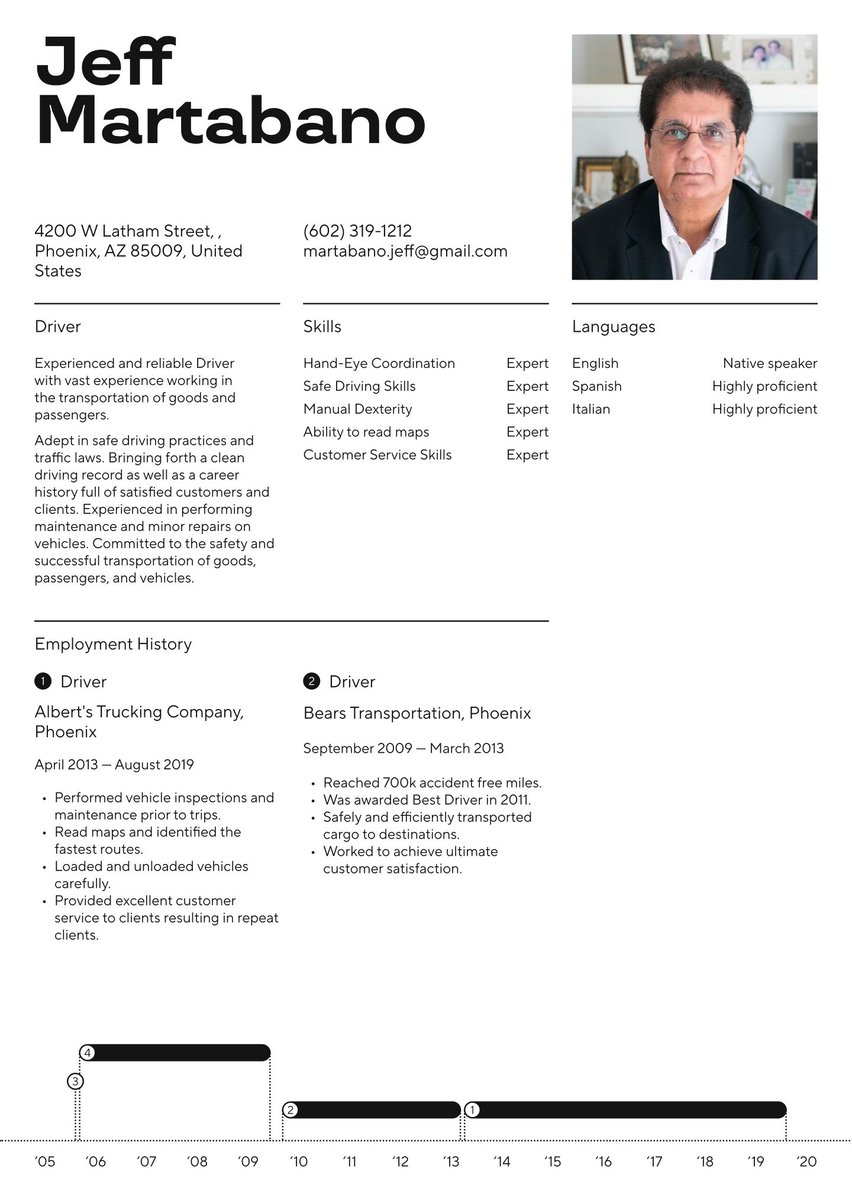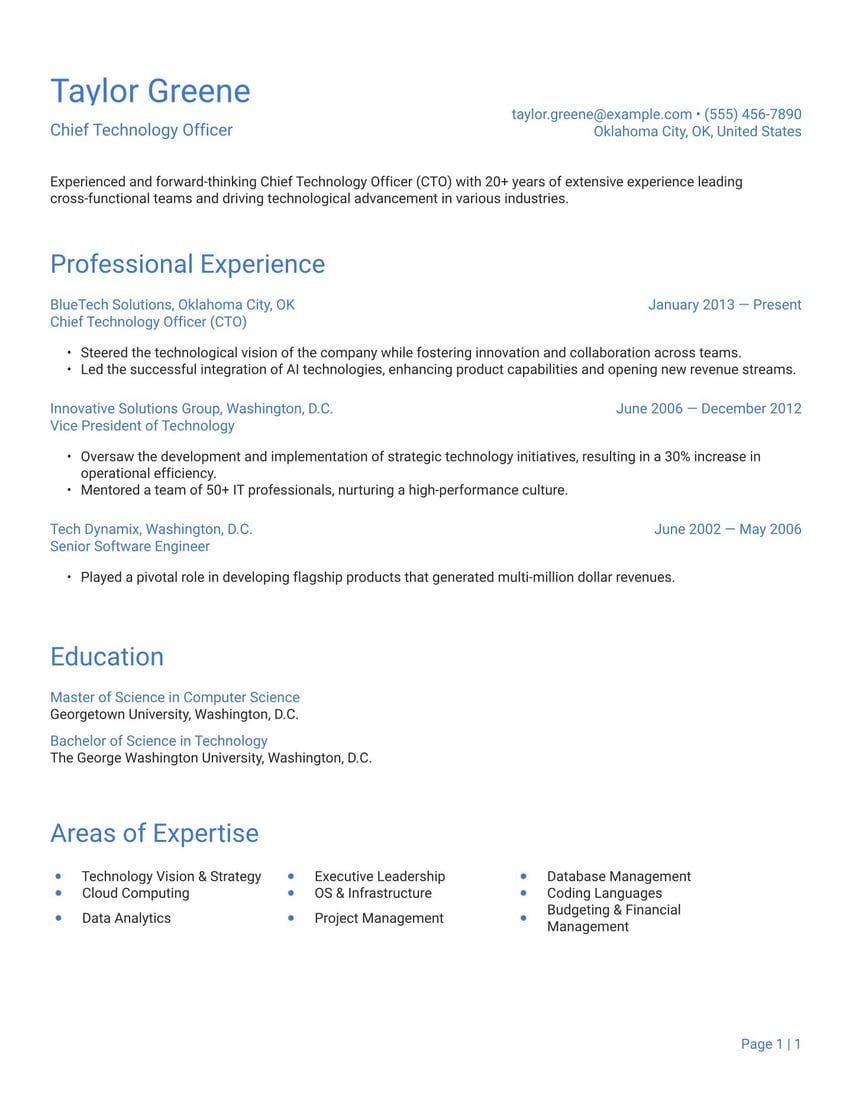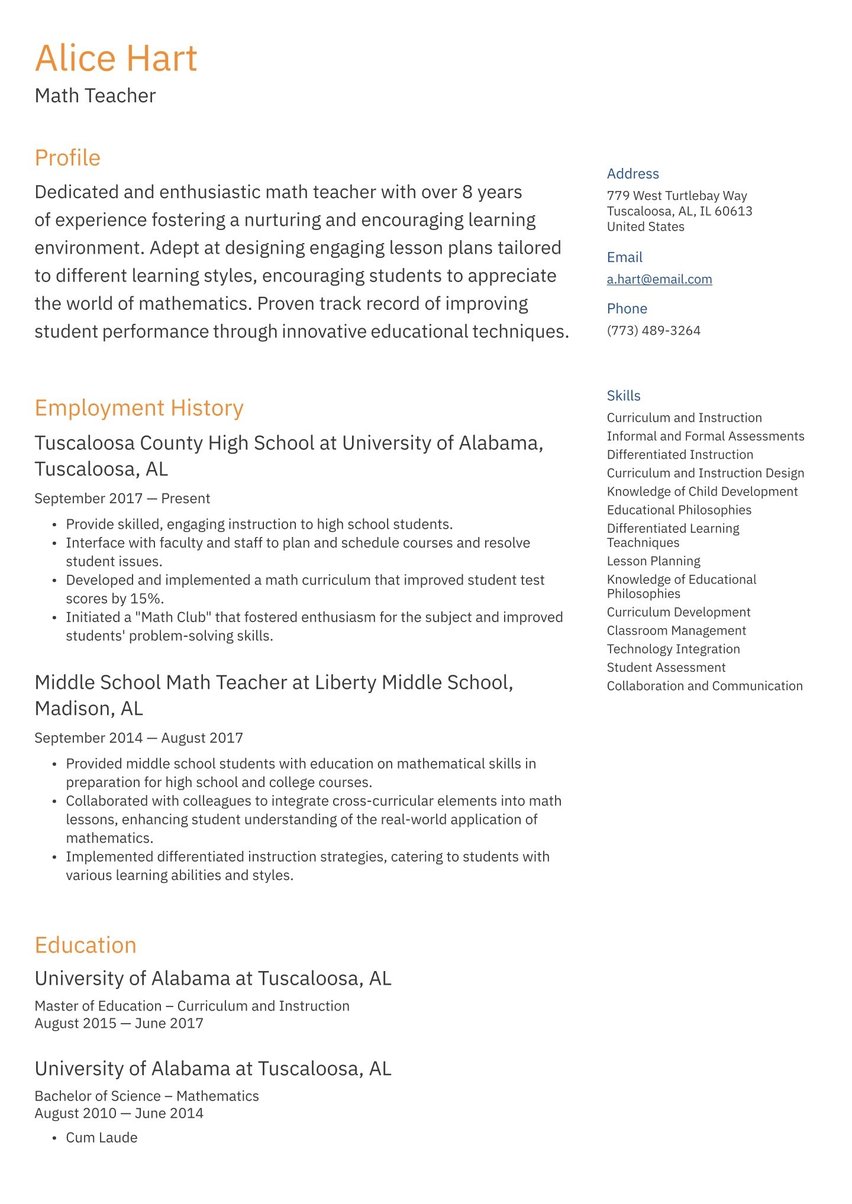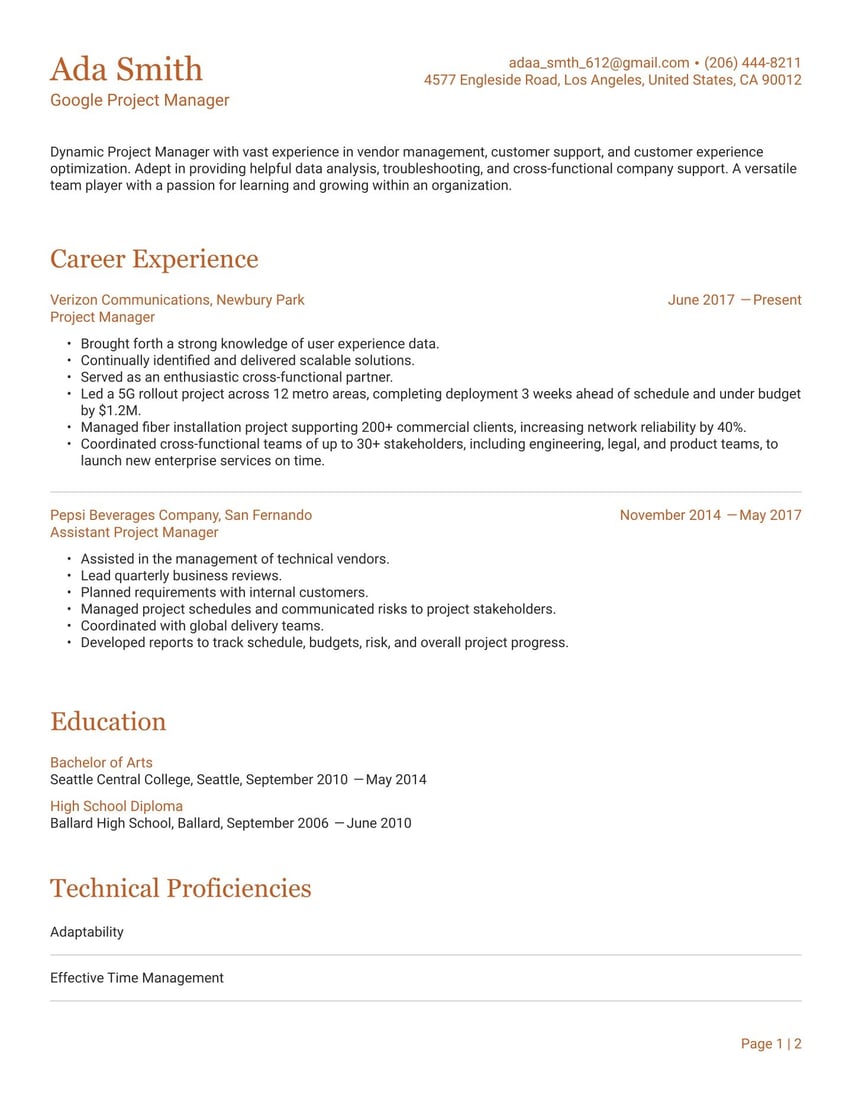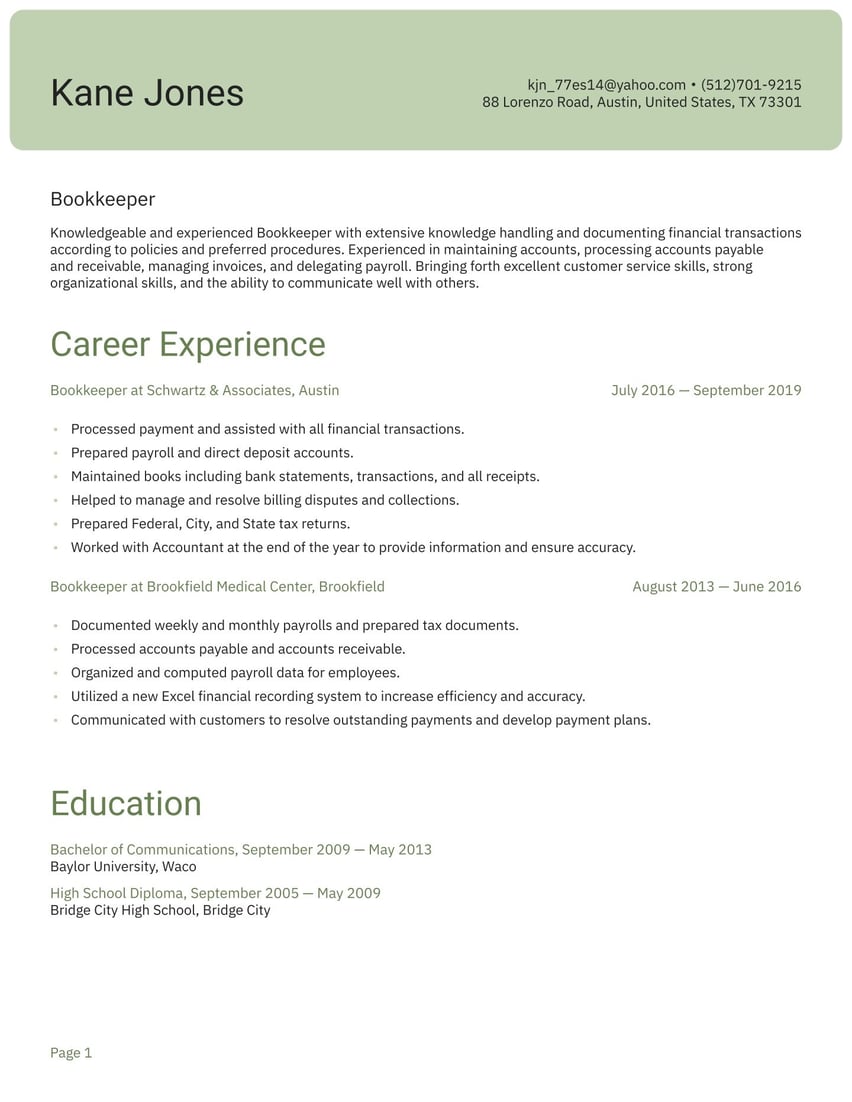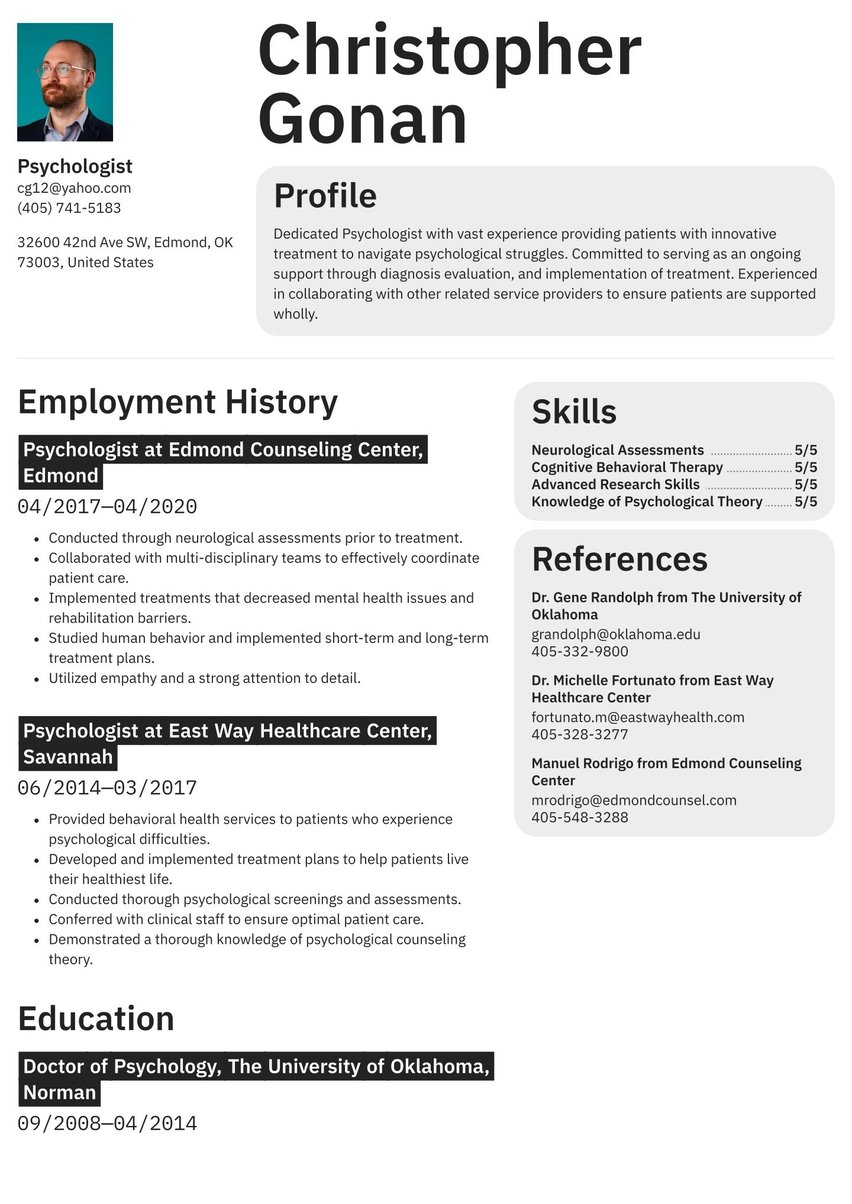09/2013 - 09/2019, Art Therapist, Lingone Medical Center, Los Angeles
- Worked in collaboration with other medical professionals and family members to enrich the lives of patients through active art-making and applied psychological theory.
- Worked with individuals, couples, families, and large groups to address personal and community concerns, while using art as a springboard for healing.
- Aimed to develop treatment plans that improve cognitive and sensorimotor functions, while fostering self-esteem and emotional health.
- Encouraged freedom of expression and self empowerment through creative processes.
08/2010 - 08/2013, Art Therapist, A Better World Inc. , Santa Monica
- Worked with children and adolescents suffering from trauma or seeking to find a better outlet for communication.
- Worked in collaboration with medical professionals and families to develop strategic individualized treatment plans and programs.
- Implemented therapy techniques that promoted anger and behavioral management, self-control, and positive social skills.
- Managed the art therapy internship program.
08/2007 - 05/2009, Master of Clinical Art Therapy, Loyola Marymount University, Los Angeles
08/2003 - 05/2007, Bachelor of Fine Arts, California Institute of the Arts, Valencia
- Psyhological Theories
- Visual Art Techniques
- Assessment and Evaluation
- Human and Creative Development
You’ve decided to use your creativity to help others and are ready to draw on those talents to find a new position. Your first task is to create an art therapy resume that shows off your artistic ability and gets you the interview you want.
Art Therapist resume examples by experience level
Crafting your resume and your job search are important tasks, but Resume.io can smooth the way, making it much easier. We offer resume guides and resume examples for 300+ professions and, when you’re ready to begin putting it all together, we have an easy-to-use resume builder.
This resume guide, along with the corresponding resume example will cover the following topics:
- What does an art therapist do?
- How to write an art therapist resume
- The best format for an art therapist resume
- Tips for each section of your resume (summary, work history, education, skills)
- Professional resume layout and design hints.
What does an art therapist do?
Art therapists combine the creation of visual art with psychology to help clients in their journey toward greater health. They assess clients and develop programs that will guide their clients toward their goals, whether they be physical, emotional, or cognitive.
Because they are trained in both art and therapy, art therapists also write treatment plans, write summaries and update case files, as well as prepare other reports. They note and report on client behavior and progress and make adjustments in treatment plans as needed.
Art therapists use a variety of media such as drawing, painting, ceramics, to guide their clients. They communicate both with their clients and with the health professionals on the care team. Other titles for art therapists include art psychotherapist or creative arts therapist.
Art therapist job market and outlook
Art therapy is a growing field and the opportunities are growing with it. In the next decade, the demand for art therapists is expected to rise at a higher than average rate of 15%, according to Career One Stop.
The median salary for art therapists is $48,368. Seasoned professionals may earn more than $65,000 while those at the low end of the scale can expect a salary of about $38,000, Payscale reports.
How to write an art therapist resume
The very first step in writing your art therapist resume is understanding what sections to include. Your CV should contain the following elements:
- The resume header
- The resume summary (aka profile or personal statement)
- The employment history section
- The resume skills section
- The education section
Choosing the best resume format for an art therapist
We know you’re a creative person, but your resume format is not the place to show it. Application documentation follows a strict format and your art therapist resume should as well. Unless your career falls outside a typical path, we recommend the reverse chronological resume format. Recruiters and Applicant Tracking Systems (ATS) favor this style, in which you list your jobs from most recent on back.
There are a couple of cases in which you may consider another format: if you have had a very varied career or if you have more than a decade in the profession. In those cases, one of the alternative or hybrid options we offer may work better for you.
ATS applications are used by most HR departments to scan and sort resumes when you apply online. The ATS takes the data from your art therapist resume and puts it into the HR system. It then uses algorithms to rank resumes based partly on keywords and phrases linked to the specific job.
To maximize your chances of getting seen by a person, incorporate keywords and phrases from the job listing into your resume.
Resume summary example: self-portrait
The summary section (also known as the profile or personal statement) of your art therapist resume gives the big picture of your professional life. Here you have the chance to illuminate your personality and biggest successes. You may want to develop this section last, after you have had a chance to really think about your career and attributes.
The summary is the only section containing full sentences and 3-4 lines are all you have room for. If you feel you cannot fit in everything you want to include, consider using your cover letter to get the information in. Make them count with strong action verbs and descriptors that tell who you are and how you work with others on your treatment teams. Include an achievement you are proud of — this is not the place to be modest!
As an art therapist, you may be working for a healthcare organization in its mental health department or in a separate mental health facility. The art therapy program may occur in an art studio or a more clinical setting. Because the environment for your work may change, be sure you target your resume to the job for which you are applying. That means that you may have to rework your summary to shift the focus for each new application. That approach will also help you beat the Applicant Tracking Systems that process and rank your resume for keywords and phrases before a human being ever sees it.
If you are looking for more creative inspiration, check out our related therapy resume examples. We offer a marriage and family therapist resume sample, a behavioral therapist resume example, a psychologist resume sample, a child psychologist resume example and a psychotherapist resume sample.
Passionate and experienced Art Therapist helping others to express emotion and confront feelings through the gift of art. Adept in assessing client needs and creating and implementing appropriate art therapy plans accordingly. Bringing forth creativity, patience, and a strong understanding of art therapy interventions.
Employment history sample: draw on your experience
The employment history section of your art therapist resume details the story of your career. You want to showcase your ability to develop and implement effective and appropriate art therapy plans to meet client needs.
Think of all the different skills you have developed in your time as an art therapist. Try to include as many of those work experiences as you can in your job descriptions. Instead of simply listing your responsibilities, create an image in words of your style of case management, your successes with art therapy groups, or how you have used art therapy sessions to improve the well-being of your clients.
Consider answering these questions in each bullet item
- What problem did I encounter?
- What steps did I take to solve it?
- What was the result of my action?
Make sure you touch on all your experience. A hiring manager will want to know if you have conducted both individual art therapy and as well as group therapy. Be as detailed as possible. For example, include the populations you worked with.
Art Therapist, Behavioral Health of New York
MARCH 2017 — PRESENT
- Provided individual, family, and group therapy sessions.
- Accurately diagnosed patients and designed effective treatment plans to carry them out.
- Collaborated with referral sources and outpatient teams.
- Taught patients how to use art to express difficult feelings and emotions.
- Utilized counseling techniques to help patients develop positive coping skills.
Art Therapist, Communicate Brooklyn, New York
AUGUST 2012 — FEBRUARY 2017
- Utilized humanistic and contemporary approaches to art therapy sessions.
- Maintained detailed records of patient progress.
- Conducted group and family art therapy sessions.
- Assessed the needs and objectives of patients prior to developing individualized art programs.
- Collaborated with other healthcare professionals to maximize positive outcomes.
Resume education example: your academics matter
Your academic achievements are important. The education section of your art therapist resume shows these off. Because art therapists are mental health professionals who need a depth of knowledge about mental illness and therapeutic practices, they are required to earn a master’s degree and complete a practicum.
Many art therapists have undergraduate degrees in social work or psychology, but that is not a requirement. You may include your practicum in the employment history section, but all your degrees and certifications should be listed in the education section.
Because you have an advanced degree, you may leave out your high school experience. If you are a registered art therapist, or ATR, or have advanced to become board certified, you may list those credentials here or create a new resume section.
- 2012-2014 NYU, Master of Art Therapy NY, NY
- 2008-2012 NYU, Bachelor of Science in Applied Psychology NY, NY
Art therapist CV skills example: mold to the job
The skills section of your art therapist CV gives an overview of your professional abilities. After detailing all the skills you used in your career, you have a chance to highlight the five to ten attributes that recruiters for each job seek.
This section should always be carefully tailored to match the requirements in the job listing. If you have expertise in a specific area, such as the creation of treatment programs for substance abuse, make sure to highlight it here.
Think of the top-level skills your employer may be looking for, and list those to differentiate yourself from other candidates. In this section, you should include crucial interpersonal skills such as compassion, strong listening skills, and a talent for problem-solving. These skills are necessary for working with clients, but also make sure hiring managers know that you can work well with the clinical team as well.
Art therapists also need hard skills such a strong working knowledge of art principles and techniques. You also need to be able to safeguard personal data, keep accurate client progress notes, and complete paperwork in a timely and organized fashion.
Try to find a mix of hard skills and soft skills that will give recruiters an overview of your professional competencies.
- Observational Skills
- Counseling
- Visual Arts Knowledge
- Advanced Communication
- Problem-solving
Resume layout and design: your place to shine
As an art professional, how your art therapist resume looks is an important part of the overall package and you know how to make great art. Your layout and design can get a bit more creative than if you were, say, an accountant, but the key is readability.
Put yourself in the shoes of a busy recruiter. What do you think they want? Yes, exactly! They want to be able to easily scan your resume to find your contact information, previous job and job title, and your skills. That means, keep your section headings simple and easy to find, use color sparingly, and vary your line lengths to avoid big blocks of type.
Save yourself the time of starting from scratch by using one of our Creative layout templates or for a sleeker look, go Modern. Either way, these recruiter-tested designs will help you make a great first visual impression.
While you’re an excellent artist, you need to be careful with your formatting. Try using our resume builder tool which incorporates the format and prompts you to save your document as a PDF for easy emailing.
Finally, our spell-checker does most of the heavy lifting in terms of grammar and typos. To be extra safe with style and tone - you can ask a trusted friend or family member to read your resume draft as well. After all that hard work, you don’t want to miss out on the job of your dreams because of a silly mistake.
Key takeaways for an art therapist resume
- The field of art therapy is growing, and a great resume can get you an interview for the job you desire.
- Get creative with your words in your summary to paint a portrait of your therapy style and expertise.
- Use your skills section to easily target the ATS and highlight your high-level abilities.
- Take advantage of the resume builder to avoid the hassle of formatting your document so you can focus on the design.


.jpg)

.jpg)










